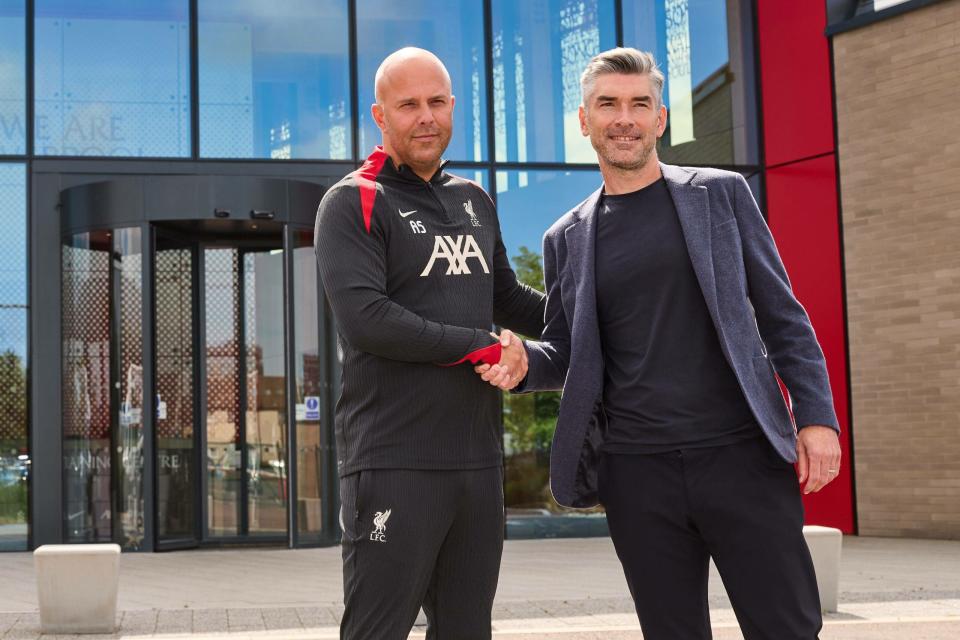Revealed: How Milan Shaped Richard Hughes’ Footballing and Liverpool Career

Liverpool’s Richard Hughes: A Legacy Born in Milan
James Pearce and James Horncastle of The Athletic vividly capture the intriguing narrative of Richard Hughes, Liverpool’s sporting director whose origins and early experiences in Italy fundamentally shaped his football and professional ethos. As Liverpool prepare for their match against AC Milan at the iconic San Siro, Hughes’ history with Italian football is under a compelling spotlight.
Richard Hughes, born in Glasgow but raised in Milan, has a rich backstory that includes an intimate engagement with Italian football culture. Hughes’ childhood idol, Paolo Maldini, and his tenure at Atalanta’s academy are not just mere anecdotes but foundational experiences that carved his path into football management. The article reveals, “I was a shy boy and at that time I just wanted to play with my mates in the local team…You go to a club like Milan and you’ve got the badge and the amount of people. It was very official, very strict. It just didn’t seem fun.”

From Atalanta to Liverpool: A Journey Through Football
His shift from Milan to Atalanta at just 11 years old marked a turning point, offering a nurturing environment that emphasized individual development over prestige. Cesare Prandelli, his coach at the time and a pivotal figure in his career, is quoted appreciating Hughes’ generous spirit and teamwork, both on and off the pitch. This personal evolution through Italian football’s rigorous yet rewarding setup undoubtedly played a role in shaping Hughes into the strategist now leading Liverpool’s recruitment and future planning.
Liverpool’s Post-Klopp Vision with Hughes at the Helm
The strategic importance of Hughes’ role at Liverpool cannot be overstated. Post-Jurgen Klopp, as Liverpool navigates its future, Hughes’ deep understanding of both the English and Italian football landscapes is a critical asset. His Italian fluency and Serie A contacts enrich Liverpool’s scouting and recruitment, potentially offering them unique advantages in the European football market.
James Pearce and James Horncastle further explore Hughes’ transition into his role at Liverpool, highlighting his tactical acumen and his approach to player development, deeply rooted in his experiences at Atalanta. As noted in the original article, “At the time we were lucky because the head of the academy was Mino Favini and like us, he loved gifted, skilful players…It was our way of seeing the game.”
Navigating Future Challenges with Italian Flair
Tonight’s encounter with AC Milan is more than just a match; it’s a homecoming of sorts for Hughes, an opportunity to showcase his journey from a Milanese boyhood fan to a key figure at Liverpool. His story is a testament to the enduring impact of early football education and the cross-cultural experiences that shape club strategies and futures in profound ways.
Our View – Anfield Index Analysis
As Liverpool fans, Richard Hughes’ appointment might initially seem like a continuation of the club’s tradition of strategic, rather than flashy, decisions – a trait Liverpool supporters have come to respect, especially in the wake of the charismatic Klopp era. Hughes brings a blend of tactical wisdom and transfer savvy that seems tailored for Liverpool’s evolving needs.
The emotional narrative of Hughes watching Liverpool battle Milan tonight, juxtaposed with the anniversaries of past Champions League encounters, adds a layer of depth to our view of him. It’s hard not to feel optimistic about Hughes’ ability to intertwine his rich Italian football heritage with Liverpool’s storied history and ambitious future.
As Arne Slot takes over the managerial reins, having a sporting director like Hughes, who is not only well-versed in the tactical nuances of Italian football but also deeply understands the cultural underpinnings of football in Italy and England, could be pivotal. It sets a promising stage for Liverpool’s future, both on and off the field.
In essence, Hughes’ story is not just about football; it’s about cultural immersion, identity, and the profound ways in which our beginnings can shape our ends. For Liverpool, the hope will be that Hughes’ Italian lessons translate into English successes, steering the club through its next great era.

 Yahoo Sports
Yahoo Sports 
